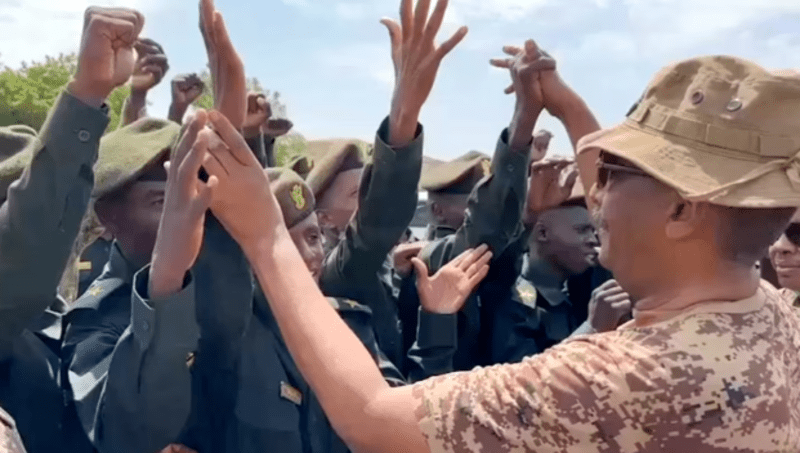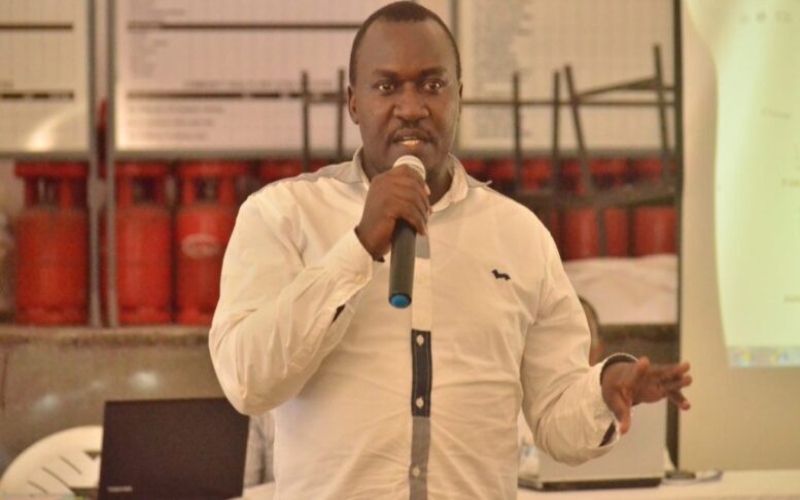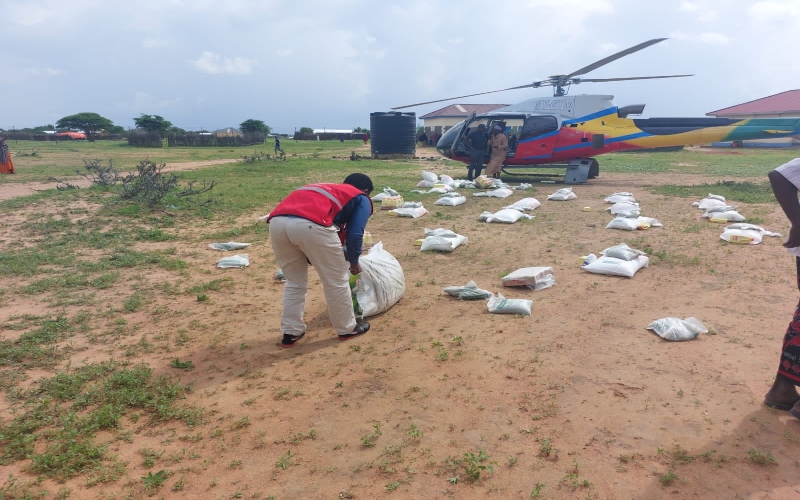Sudan's army chief Burhan defiant after drone strikes army base

An adviser to the leader of the Rapid Support Forces (RSF), the army's rival in the war, denied that the paramilitary force was responsible for the strike.
Sudan's army chief Abdel Fattah al-Burhan struck a defiant tone on Wednesday after a drone hit an army base he was visiting in eastern Sudan, casting doubt on recent efforts to bring an end to a 15-month civil war.
A statement by the army said the attack took place at a graduation ceremony at the Gibeit army base, about 100 km (62 miles) from the army's de facto capital Port Sudan in Sudan's Red Sea state, and that five people were killed.
More To Read
- EU launches Sh530 million airlift to deliver life-saving aid to Darfur amid deepening Sudan crisis
- UN Secretary-General condemns ‘horrific’ drone strike on peacekeepers in Sudan
- Nine dead, 17 injured in RSF drone strike on Sudan’s Dilling military hospital
- Sudan war: Aid teams say deal struck to reach stricken El Fasher
- UK sanctions Sudan’s RSF commanders over atrocities amid ongoing conflict
- Maternal and newborn health in crisis as millions born in conflict zones, Save the Children warns
Witnesses confirmed that Burhan was at the base when the drone struck on Wednesday morning. Official sources said he remained in the area and returned to the base to speak to troops, contradicting earlier reports that he had left for Port Sudan.
An adviser to the leader of the Rapid Support Forces (RSF), the army's rival in the war, denied that the paramilitary force was responsible for the strike.
Burhan, whose foreign ministry had conditionally accepted a U.S. invitation to talks in August, told soldiers after the strike: "We will not retreat, we will not give up, and we will not negotiate with any entity."
"We do not fear drones, we only die when God has planned," said Burhan, dressed in combat attire. Footage shared by the military that it says was filmed in Gibeit after the graduation ceremony showed Burhan being mobbed by cheering civilians, chanting "one army, one people."
The drone attack is the latest in a string of such attacks on army locations in recent months, and the closest to Port Sudan. Over the past two days, drone strikes have hit Kosti, Rabak, and Kenana in Sudan's southern White Nile state, as well as al-Damer, to the north of the capital, according to locals.
The RSF has not commented on those strikes.
A video shared on social media and verified by Reuters showed soldiers marching in a graduation ceremony before a whirring sound is heard followed by the sound of an explosion. Another shows a cloud of dust and scores of people running.
"We heard sounds of explosions all of a sudden and everyone ran scared," said one eyewitness, noting that many families of graduating officers were present.
Plans for peace talks
War broke out between the RSF and the regular army in April 2023 over plans to integrate the two forces under a political transition towards elections.
The two forces had shared power uneasily after staging a coup in 2021, derailing a previous transition that followed the overthrow of former leader Omar al-Bashir in 2019.
The conflict has created the world's largest humanitarian crisis, pushed half the population into a hunger crisis and driven more than 10 million out of their homes.
On Wednesday an RSF official blamed the drone strike on Islamist elements. "The RSF has nothing to do with the drones that targeted Gibeit today ... they are the result of internal disagreements, between Islamists," legal adviser Mohamed al-Mukhtar told Reuters.
The RSF had responded to Tuesday's foreign ministry statement saying it would only negotiate with the army, and not the Islamists who make up a large part of the civil service.
Burhan on Wednesday said while he welcomed efforts to stop the war, mediators needed to consult Sudan on topics and participants, as well as respect the government's sovereignty.
"We want to end the war with our heads held high and victorious, but if the enemy is in people's homes and is killing them, the war won't end," he said.
In recent weeks, the RSF has renewed its efforts to capture more territory and has staged incursions into the southeastern state of Sennar, displacing more than 165,000 people, as well as White Nile and al-Gedaref states.
Last year, it swiftly took control of the capital Khartoum, followed by most of the Darfur region and El Gezira state, though it has continued to shell the city of al-Fashir, one of 14 sites in Sudan where experts warn of famine.
Previous efforts to secure a lasting ceasefire have failed, and many Sudanese consider the talks in Switzerland as the best opportunity to negotiate an end to the war.
The talks are co-sponsored by Saudi Arabia and are to include Egypt and the United Arab Emirates, which the army and others have said is supporting the RSF, in particular with weaponry such as drones. The UAE denies the accusation.
Top Stories Today










































